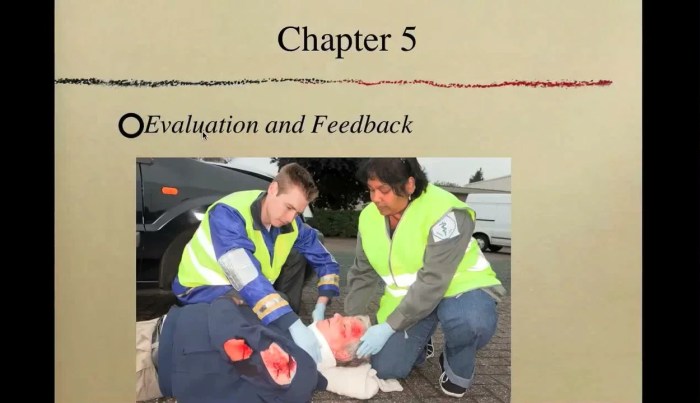Prepare for success with Platinum Planner Preceptor Test Answers, the ultimate resource for mastering the exam’s intricacies. This comprehensive guide provides a clear overview of the test structure, content, and preparation strategies, empowering you to excel on test day.
The Platinum Planner Preceptor Test is an essential assessment for aspiring healthcare professionals seeking to enhance their knowledge and skills in preceptorship. Understanding the test’s format, question types, and scoring system is crucial for effective preparation. This guide delves into each aspect of the exam, providing valuable insights to maximize your performance.
Platinum Planner Preceptor Test Overview

The Platinum Planner Preceptor Test is a standardized assessment designed to evaluate the knowledge and skills of healthcare professionals who serve as preceptors for students in clinical settings. It is administered by the National Board of Medical Examiners (NBME) and is widely recognized as a benchmark for preceptor competency.
The test is divided into two sections: a written examination and an oral examination. The written examination consists of 150 multiple-choice questions that cover core knowledge areas such as preceptorship principles, assessment techniques, and teaching methodologies. The oral examination involves a structured interview with two examiners who assess the candidate’s communication skills, clinical reasoning, and ability to provide effective feedback.
To be eligible for the Platinum Planner Preceptor Test, candidates must hold a valid license to practice medicine or a related healthcare profession. They must also have at least two years of experience as a preceptor and be able to demonstrate proficiency in the core knowledge areas covered by the test.
The scoring system for the Platinum Planner Preceptor Test is based on a scaled score of 0 to 100. A passing score of 70 or higher is required to earn the Platinum Planner Preceptor certification. Candidates who do not pass the test can retake it after completing additional preparation and meeting the eligibility criteria.
Test Content and Format
The Platinum Planner Preceptor Test covers a comprehensive range of topics related to preceptorship practice. The core knowledge areas include:
- Preceptorship principles and models
- Assessment techniques and feedback strategies
- Teaching methodologies and curriculum development
- Ethical and legal considerations in preceptorship
- Communication skills and conflict resolution
- Diversity and inclusion in preceptorship
- Quality improvement and evaluation of preceptorship programs
The written examination consists of multiple-choice questions that assess the candidate’s understanding of these core knowledge areas. The questions are designed to be challenging and require a deep understanding of the concepts being tested.
The oral examination involves a structured interview with two examiners. The examiners assess the candidate’s ability to communicate effectively, apply clinical reasoning skills, and provide constructive feedback to students. The interview also includes questions about the candidate’s experience as a preceptor and their commitment to professional development.
Preparation Strategies

Preparing for the Platinum Planner Preceptor Test requires a dedicated and systematic approach. Here are some effective study strategies:
- Review the core knowledge areas:Familiarize yourself with the core knowledge areas covered by the test. This can be done by reading textbooks, attending workshops, and participating in online courses.
- Practice answering multiple-choice questions:The written examination consists of multiple-choice questions. Practice answering these questions to improve your understanding of the concepts being tested and your ability to apply them in different situations.
- Simulate the oral examination:The oral examination is a structured interview. Practice answering questions in a simulated interview setting to become comfortable with the format and improve your communication skills.
- Get feedback from peers and mentors:Ask colleagues, mentors, or other healthcare professionals to review your answers and provide feedback. This can help you identify areas where you need additional preparation.
It is also important to manage your time effectively during the preparation process. Create a study schedule and stick to it. Break down the material into smaller chunks and focus on one topic at a time. Take breaks as needed to avoid burnout.
Test-Taking Techniques

On the day of the test, it is important to arrive well-rested and prepared. Here are some test-taking techniques to help you maximize your performance:
- Read the instructions carefully:Before starting the test, read the instructions carefully to ensure that you understand the format and requirements.
- Manage your time:The written examination is timed. Allocate your time wisely to ensure that you have enough time to answer all the questions.
- Answer questions strategically:If you are unsure about an answer, make an educated guess. There is no penalty for incorrect answers.
- Review your answers:If time permits, review your answers before submitting the test.
For the oral examination, it is important to be well-prepared and to communicate your ideas clearly and concisely. Listen carefully to the questions and take your time to answer. Be respectful of the examiners and ask for clarification if needed.
Post-Test Analysis and Improvement

After taking the Platinum Planner Preceptor Test, it is important to analyze your results and identify areas for improvement. The NBME provides candidates with a score report that includes a breakdown of their performance on each section of the test.
If you did not pass the test, review your score report carefully to identify your strengths and weaknesses. Consider taking additional preparation courses or workshops to improve your knowledge and skills in the areas where you need the most improvement.
Even if you passed the test, it is still important to identify areas for improvement. Continuing education and professional development are essential for maintaining your competency as a preceptor. Attend workshops, read articles, and participate in online courses to stay up-to-date on the latest best practices in preceptorship.
Query Resolution: Platinum Planner Preceptor Test Answers
What is the purpose of the Platinum Planner Preceptor Test?
The Platinum Planner Preceptor Test assesses the knowledge and skills of individuals seeking to become preceptors in healthcare settings.
What are the eligibility criteria for the Platinum Planner Preceptor Test?
Eligibility requirements may vary, but typically include a valid nursing license and experience in preceptorship or related roles.
How can I register for the Platinum Planner Preceptor Test?
Registration details can be found on the official Platinum Planner website or through authorized testing centers.
What is the passing score for the Platinum Planner Preceptor Test?
The passing score is typically set by the testing organization and may vary from year to year.
What resources are available to help me prepare for the Platinum Planner Preceptor Test?
Study materials, practice tests, and online resources are available to support your preparation.